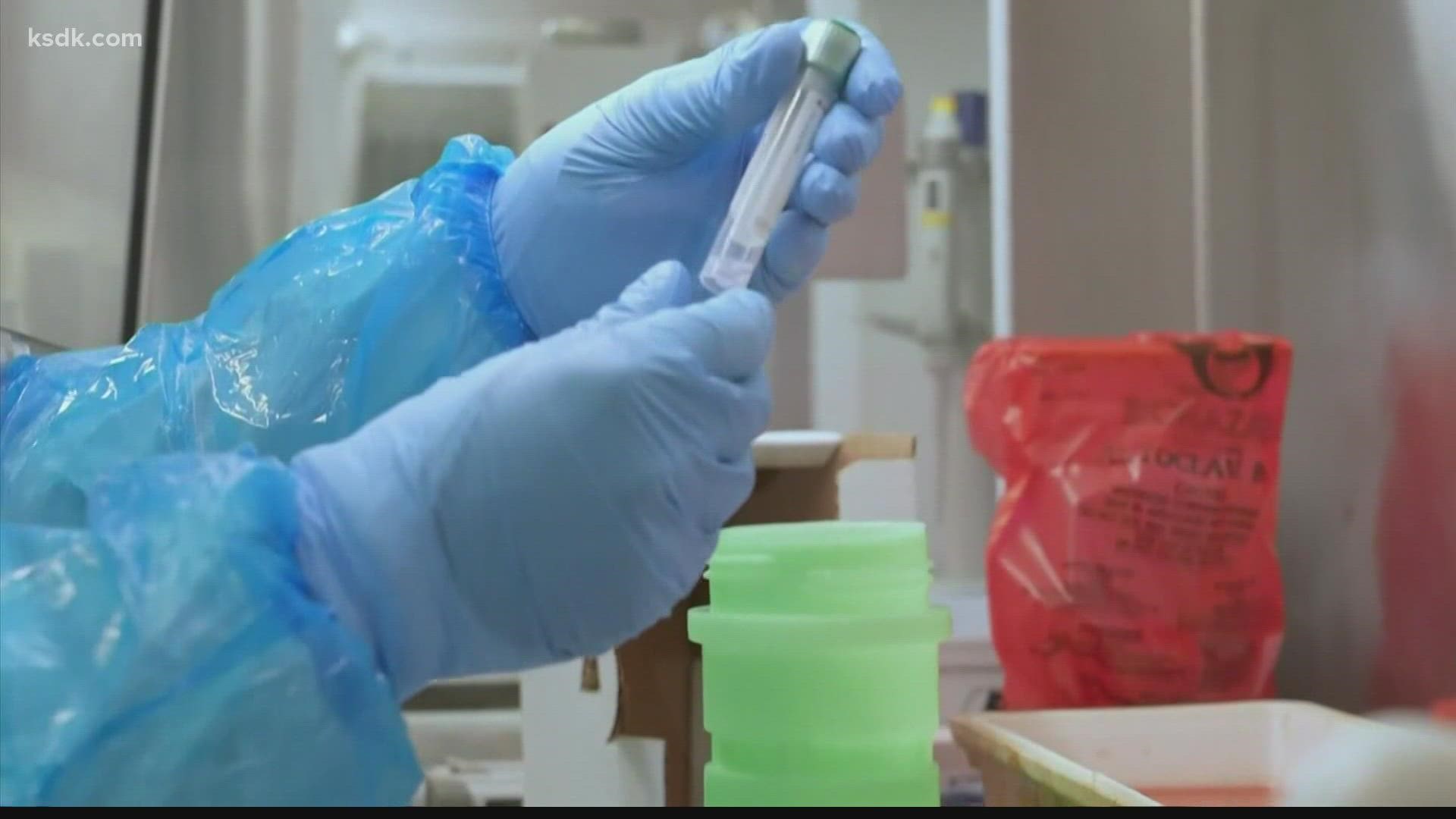ST. LOUIS — The omicron variant of COVID-19 has now been found in at least 17 states, including Missouri.
Leaders announced the first case of the omicron variant in St. Louis City Friday. It was found in someone who recently traveled within the U.S.
The CDC says omicron will likely spread easier than other variants, but scientists do not know if it is more dangerous. Dr. Rachel Charney, Director of Emergency Preparedness at Cardinal Glennon Children's Hospital, says tracking it is very important.
"It's good to know what is prevalent in your community and what's driving your surge forward," Charney said.
Dr. Charney says identifying a virus variant allows scientists to take a closer look. When studying variants, researchers look for a few things:
- whether the variant introduces new variables into the pandemic
- whether the variant is more transmissible
- does the variant cause more severe disease
- are vaccines effective against the variant strain
Depending on findings, Dr. Charney says health care providers will adjust protocols for how they manage the virus. Adjustments like how patients are treated and how transmission can be prevented.
For now, omicron data is limited.
"We don't have as much information as we'd all like to have already on the omicron variant," she said. "For now it's still the delta [variant] that we are dealing with in the United States."
Tracking omicron, once it is more prevalent, might be a bit easier than tracking delta. That's because some common PCR tests are able to pick up the variant, significantly shortening the lab time.
"That's a unique finding," Dr. Charney told 5 On Your Side about the omicron research, "certain PCR tests have a marker on them that can that goes along with the Omicron variant. It's not across the board and not every testing group has that ability."
Dr. Charney says most variant testing is done by determining the entire genetic makeup of COVID cells.
"It's a very time-consuming process. We do it usually on a collection and that's the surveillance work that's done at the department of public health at the state level and at the federal level as well."

